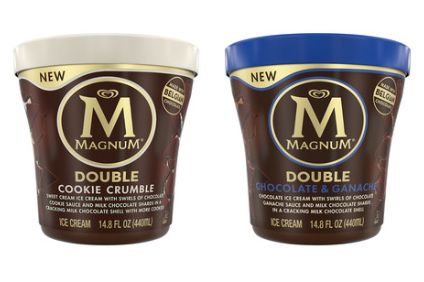
Unilever has extracted its financial guidance after the Anglo-Dutch consumer goods giant reported the impact of Covid-19 on its business in the first quarter, when underlying sales growth was flat.
Emerging markets were hit the most, with sales down 1.8%, while the performance in developed countries showed a 2.8% increase in sales.

Discover B2B Marketing That Performs
Combine business intelligence and editorial excellence to reach engaged professionals across 36 leading media platforms.
Unilever said China “slowed significantly” during the country’s Covid-19 lock down, which began in January, as foodservice demand declined, and ice cream and retail sales tailed off. Meanwhile, Europe and North America “saw a positive impact of household stocking in March”.
The owner of the Ben & Jerry’s and Magnum ice-cream brands added that most major markets outside China “saw normal sales patterns in January and February with Covid-19 impacting in March”.
Chief executive Alan Jope said in the earnings statement today (23 April): “We will continue to adapt throughout this crisis. However, the unknown severity and duration of the pandemic, as well as the containment measures that may be adopted in each country, mean that we cannot reliably assess the impact across our markets and our business. We are therefore withdrawing our previous growth and margin outlook for 2020.
“Our portfolio, our financial stability and the quality of our leadership teams around the world mean that Unilever is well-positioned during this crisis and for the changing world that will come afterwards. The fundamental drivers of growth continue to be the key principles driving our execution as we remain focused on delivering superior long-term financial performance through our sustainable business model.”

US Tariffs are shifting - will you react or anticipate?
Don’t let policy changes catch you off guard. Stay proactive with real-time data and expert analysis.
By GlobalDataUnilever is putting up EUR500m (US$539.9m) to aid its “most vulnerable small- and medium-sized suppliers and small-scale retail customers” that rely on the FMCG giant for business.
Flat quarter-one sales resulted in a turnover of EUR12.44bn versus EUR12.42bn a year earlier, with volumes up 0.2% but pricing down 0.2%.
For Unilever’s Foods and Refreshment segment, underlying sales declined 1.7%, with volumes down 1.8% and positive pricing of 0.1%.
“The largest volume decline was in ice cream, as the seasonal sell-in for out of home consumption in key markets such as Europe, Turkey and Latin America were heavily impacted by lock-down measures and the reluctance of distributors to commit to buying ice-cream stock with an uncertain holiday and tourism season,” Unilever noted.
“There was also a sharp decline in foodservice, as restaurants in China and elsewhere closed due to Covid-19 mitigation measures. This was offset by increased in-home consumption and household stocking in some markets, particularly the USA and Europe, leading to volume-led growth in savoury and dressings.
“Knorr saw low single-digit growth, while Hellmann’s grew double-digits as our brands helped to feed the many families at home.”
Back in emerging markets, Unilever said India had slowed even before lock-down measures were imposed in the South Asian country at the end of March, while conditions in Latin America “remain challenging, as they were before Covid-19, although we have seen some household stocking at the end of the quarter”.
When Unilever presented its 2019 full-year results in January, the company said sales growth for the current year was expected at the lower-end of the “multi-year 3-5% range and will be second-half weighted”.
It added: “While we expect an improvement from the fourth quarter of 2019 into the first half of 2020, first-half underlying sales growth will be below 3%”, with an improvement in the underlying operating profit margin.





